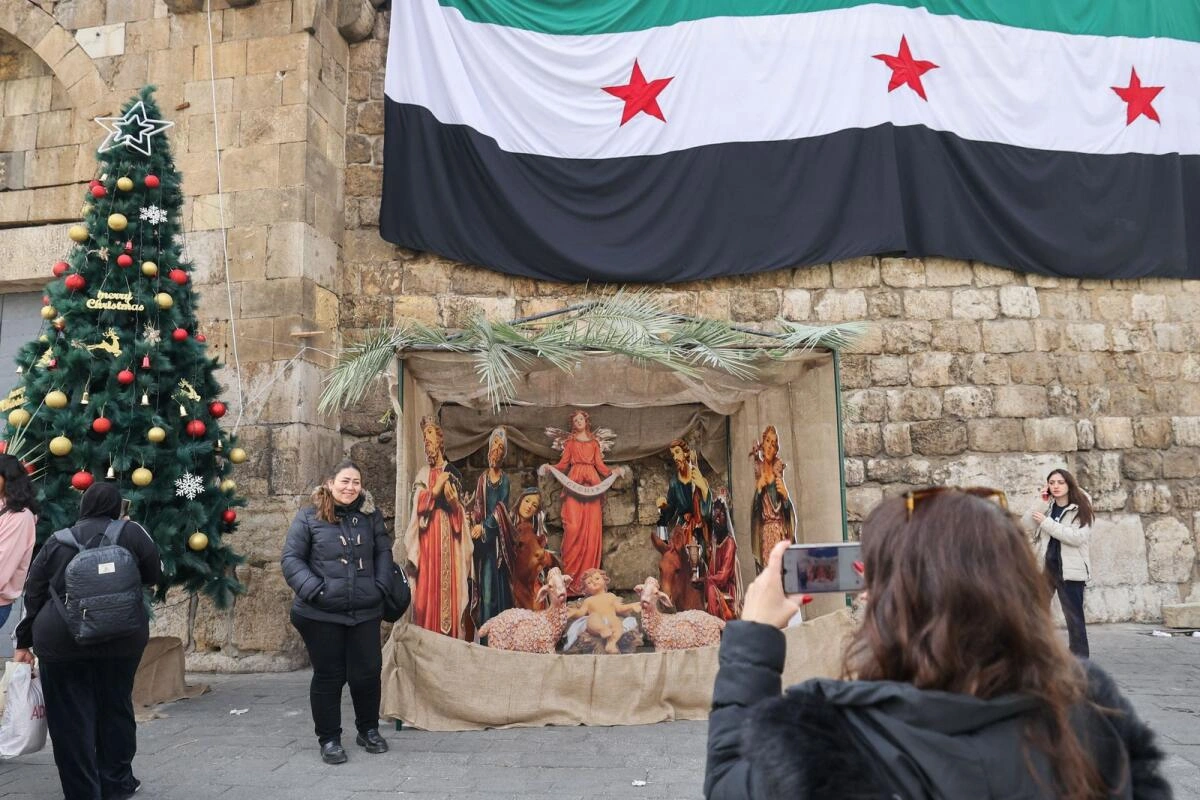Hundreds of people gathered in Christian areas of Damascus early Tuesday to protest after a Christmas tree was burned in Suqaylabiyah, a Christian-majority town near Hama. The demonstrators, holding banners and chanting slogans, marched through the city streets toward the headquarters of the Orthodox Patriarchate in the Bab Sharqi neighborhood.
Protesters demanded justice and equal rights for Christians in Syria, chanting, “We demand the rights of Christians.” The incident has reignited fears about religious freedom under Syria’s new leadership, just weeks after Islamist forces led a coalition that overthrew Bashar Al Assad’s government.
Anger Over Religious Injustice
One protester, Georges, expressed his frustration, saying, “If we’re not allowed to live our Christian faith in our country, as we used to, then we don’t belong here anymore.”
The unrest began after a video circulated on social media showing hooded fighters burning a Christmas tree in Suqaylabiyah. According to the Syrian Observatory for Human Rights, the fighters belonged to a foreign Islamist group called Ansar Al Tawhid.
In another viral video, a religious leader from Hayat Tahrir Al Sham (HTS), Syria’s new ruling group, assured residents that the perpetrators would be punished. “The tree will be restored and lit up by tomorrow morning,” he promised, emphasizing that those responsible were “not Syrian.”
Religious Leaders Urge Caution
Despite HTS leaders’ assurances that minorities will be protected, Christian leaders in Syria are advising people to tone down Christmas celebrations. Bishop Andrew Bahhi of St. George’s Syriac Orthodox Church encouraged modest behavior, asking women to dress conservatively and limiting public holiday displays such as distributing sweets or Father Christmas imagery.
Ahmed Al Sharaa, HTS’s de facto ruler, has also promised safety for religious minorities, telling Western officials that HTS will not seek revenge against the former regime nor suppress other faith groups.
Fear Persists Among Christians
For some Christians, however, skepticism about these assurances remains. Emilia Katarina, who lost her husband and son during the civil war, shared her ongoing fear. “Whenever I hear a sound at night, I jump. Fear is deeply ingrained in us,” she said, sitting beside a portrait of her late husband.
Her daughter added, “The ideology does not change in an hour. We are afraid of this ideology.”
The situation highlights the growing tension between promises of protection from Syria’s new rulers and the deep mistrust felt by the Christian community, who have been significantly impacted by the civil war and recent political changes.





